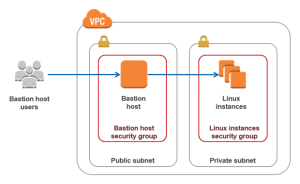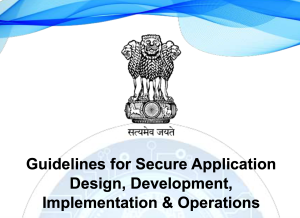
Tax season is a time of year when many people are eagerly awaiting their tax returns, hoping for a financial boost. Unfortunately, it’s also a time when cybercriminals ramp up their efforts to steal your money and sensitive information through sophisticated tax scams. Last year, the IRS reported a significant increase in phishing attempts aimed at exploiting unsuspecting taxpayers. To protect yourself, it’s crucial to stay vigilant and informed about the tactics scammers use and how you can safeguard your personal data.
How Tax Scams Happen
Cybercriminals have developed a range of techniques to deceive taxpayers into giving up their hard-earned money or sensitive information. Here are some common tax-related scams you should be aware of:
- Phishing Emails from Fake Tax Service Companies:
- Scammers often pose as legitimate tax service companies by spoofing emails and using stolen logos. These emails may look official and convincing, but they are designed to trick you into sharing personal information, such as your Social Security number or tax return data. Once the scammers have this information, they can steal your identity and your tax refund.
- Malicious Links and Attachments:
- Another common scam involves emails that contain hyperlinks or attachments. The links may direct you to a fake website designed to look like an official tax service site, where you’re prompted to enter sensitive information. Alternatively, the attachments may be disguised as important tax documents, but they actually contain malware or viruses that can infect your computer and give the scammers access to your personal data.
- IRS Impersonation Phone Calls:
- Scammers don’t limit their attacks to email. They may also call you, pretending to be IRS representatives. These callers often use scare tactics, such as threatening you with arrest, deportation, or the suspension of your business or driver’s license if you don’t pay a supposed tax debt immediately. The goal is to create a sense of urgency and fear, pushing you to comply without thinking.
These examples are just a few of the many tactics that scammers use. It’s important to remember that these cybercriminals are constantly coming up with new ways to trick you, so staying informed and cautious is key.
How to Recognize a Tax Scam
The good news is that there are clear signs to help you identify a tax scam. Here are some important points to keep in mind, especially during tax season:
- Official IRS Communication:
- The IRS will always mail you a bill before making any phone calls about taxes owed. If you receive a call demanding payment without having received a bill in the mail first, it’s likely a scam.
- Payment Requests:
- The IRS will never ask for your credit or debit card numbers over the phone. If someone claiming to be from the IRS requests this information, do not provide it.
- Threats of Arrest:
- The IRS will never immediately threaten to arrest you for not paying taxes owed. Scammers often use threats of arrest or other severe consequences to pressure you into acting quickly.
- Opportunity to Dispute:
- The IRS will always give you the opportunity to question or appeal the amount you owe before demanding payment. If a caller insists that you must pay immediately without any chance for appeal, it’s a scam.
- Communication Methods:
- The IRS does not use email or text messages to discuss personal tax matters, such as taxes owed or tax refunds. Any unsolicited email or text claiming to be from the IRS should be treated as suspicious.
- Sharing Sensitive Data:
- Only share sensitive information over email if there is no other alternative and you are absolutely certain that the recipient is legitimate. When in doubt, contact the organization directly using official contact information.
Staying Safe During Tax Season
Tax season should be a time to focus on getting your financial affairs in order, not worrying about falling victim to a scam. By staying aware of the tactics scammers use and following the guidelines provided, you can protect yourself and your hard-earned money from cybercriminals.
If you ever receive a suspicious email, phone call, or message claiming to be from the IRS or a tax service, take a step back and think before you act. Verify the legitimacy of the communication by contacting the IRS or the service directly through official channels. And remember, when it comes to your personal information, it’s better to be safe than sorry.
Conclusion
Tax scams are a serious threat that can lead to financial loss and identity theft. However, by staying informed and cautious, you can significantly reduce your risk of falling victim to these malicious activities. Always remember to verify the legitimacy of any tax-related communication, and don’t let the bad guys take advantage of you during tax season.

Tags: TaxScams, IRSPhishing, CyberSecurityTips, PhishingPrevention, TaxSeasonSafety, IdentityTheft, CyberSecurityAwareness, FinancialSecurity, ProtectYourData





